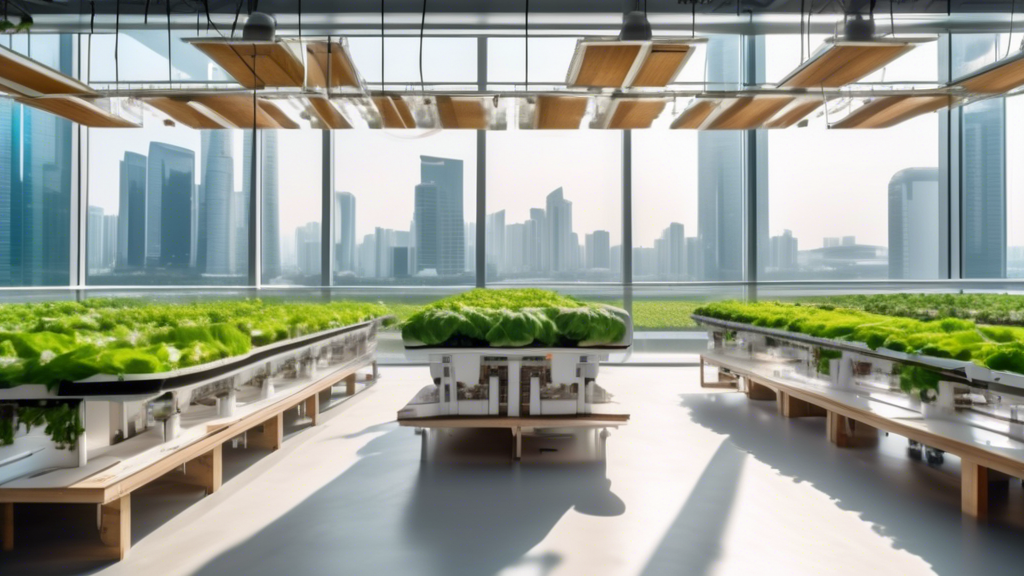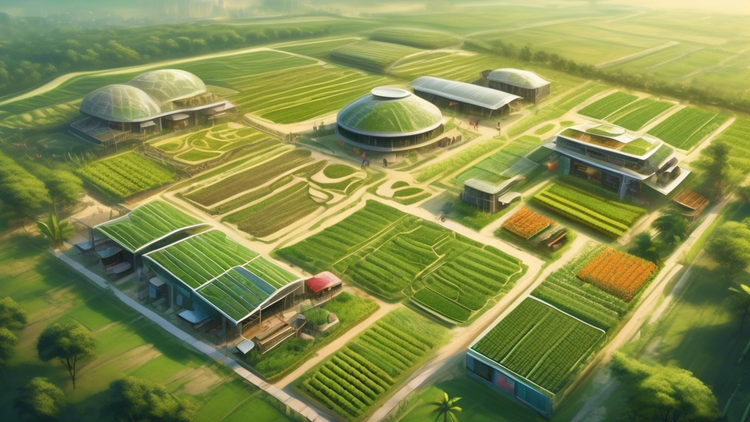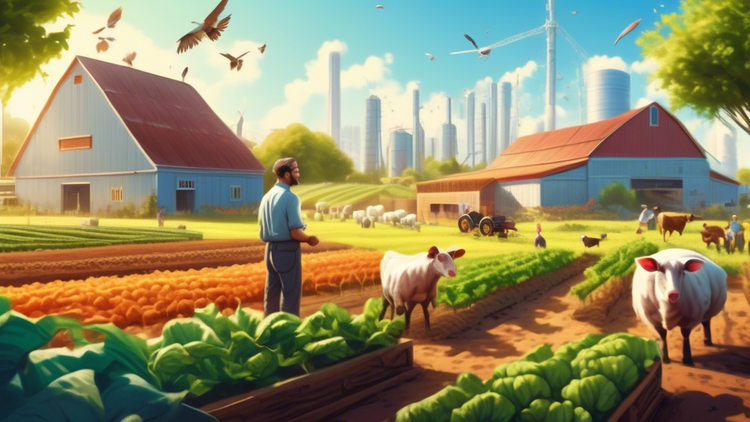Innovations in Dutch agricultural technology could be key to securing Singapore's food future.

Introduction to Dutch Agricultural Innovations
The Netherlands, despite its small geographic size, is a giant in the agricultural sector, renowned for its high-tech farming techniques. From robotic automation to advanced genetic modification, Dutch farms serve as global models for increasing crop yield and reducing waste. As Singapore continues to face challenges related to food security and sustainable agriculture, these innovations from the Netherlands present promising solutions.
Understanding Singapore's Food Security Challenges
Singapore, a small island nation with limited agricultural land, imports over 90% of its food. This dependency makes it vulnerable to global supply chain disruptions and price volatilities. In response, the Singaporean government has launched the 30 by 30 initiative, which aims to produce 30% of the nation’s nutritional needs locally by 2030. Achieving this requires significant advancements in agricultural technology and practices.
Key Areas Where Dutch Technology Can Play a Role
The Netherlands excels in several agricultural technologies that can be adapted to suit Singapore’s needs:
- Vertical Farming: Dutch companies are pioneers in creating multi-level farming structures that maximize space and efficiency. These systems can be particularly effective in land-scarce environments like Singapore.
- Hydroponics and Aquaponics: These soil-less farming techniques are already being used in Singapore but can be enhanced with Dutch innovations in nutrient film techniques and integrated systems that combine plant and fish farming efficiently.
- Genetic Crop Modification: The Netherlands has developed techniques to genetically modify crops to enhance yield and resistance to pests and diseases. Such crops could be crucial for Singapore, reducing the need for chemical pesticides and increasing production stability.
- Robotics and Automation: Dutch farms utilize robotics for planting, harvesting, and packing, reducing labor costs and increasing precision in agriculture. Introducing more robotic solutions can help Singapore manage its labor constraints in the agriculture sector.
Energy-Efficient Farming
Another aspect of Dutch agriculture from which Singapore could greatly benefit is energy-efficient farming practices. The Netherlands uses innovative methods to reduce energy consumption throughout the farming process, which is critical for sustainable urban agriculture. This involves sophisticated LED lighting systems for indoor farms, which not only reduce energy use but can enhance plant growth by optimizing light wavelengths.
Case Studies: Success Stories from the Netherlands
The effectiveness of Dutch agricultural technologies can be illustrated through various successful case studies:
- GreenTech Amsterdam: An annual event showcasing the latest innovations in Dutch agriculture, where stakeholders from around the world explore sustainable agriculture solutions.
- Wageningen University & Research: A leading institution in agriculture research, which has developed numerous high-yield, disease-resistant crop varieties that could be adapted for use in Singapore.
- The Tomato Greenhouse Project: This project uses a unique closed greenhouse system to produce high yields with low water and energy usage, adapting these technologies could greatly benefit Singapore's local production.
Implementing Dutch Technologies in Singapore
For successful implementation of these technologies, Singapore needs to focus on:
- Government Support and Funding: Encouraging public-private partnerships and providing subsidies for the adoption of new technologies.
- Education and Training: Establishing training programs to equip local farmers with the necessary skills to operate high-tech farming equipment.
- Customization to Local Needs: Adapting Dutch technologies to fit Singapore's specific environmental and market conditions.
Here's a thought to consider
The fusion of Dutch agricultural technology and Singaporean innovation could create a powerhouse for urban food production, setting a benchmark for cities worldwide. Not only could this collaboration strengthen Singapore's food security, but it could also propel the country to the forefront of sustainable urban agriculture.
Looking for updates? Sign up to our newsletter for weekly snippets.





